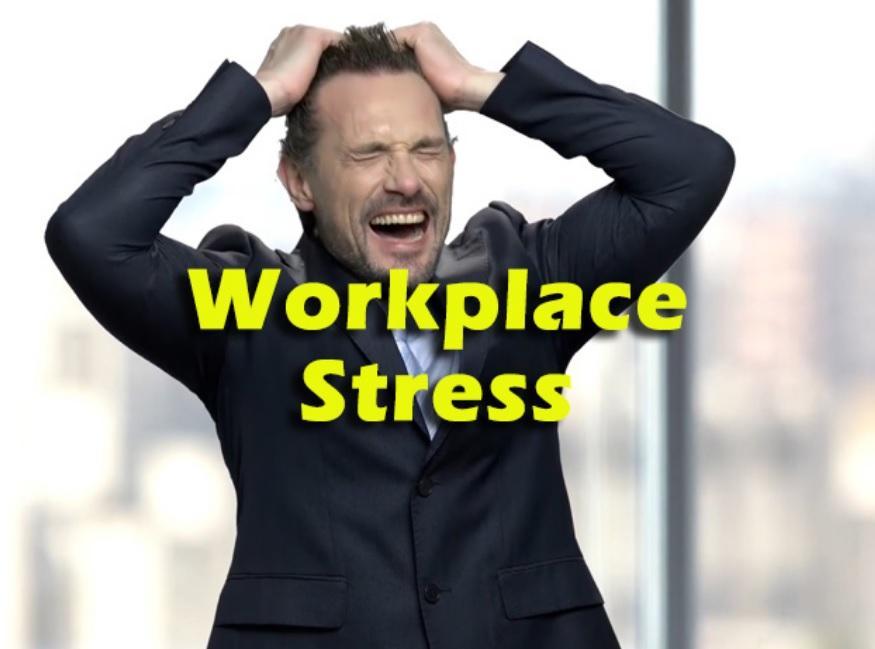Today we’re talking about how to reduce workplace stress. Stress is a hazard that we all face, and it can come from a variety of sources such as bills, work memos, and even good things like being a new parent. When we feel stressed, our muscles tense up, we get an adrenaline rush, and our heart rate increases. This can be alarming, but in positive stress situations, it’s only temporary. However, negative stress is not so healthy, and can cause long-term physical and mental damage. Reliable physical indicators of stress include achy muscles, headaches, and indigestion, and it’s important to identify the source of your stress and make positive changes. For example, if road traffic makes you late for work, try leaving earlier, carpooling, or taking public transit.
For a demo of the Online Training System or to preview any of the available topics click here
Enjoy fun breaks: big life changes, like moving to a new city, can also be stressful. To lessen the impact, focus on the little things that bring you pleasure, like cooking, running, or watching movies. It’s important to recognize that there are some things in life that you simply can’t control, so eliminate them from your to-do list and don’t put unreasonable pressure on yourself.
Practice breathing exercises: Stress can also affect the way you breathe, making your breaths shallow and rapid. You can control this reaction by doing deep breathing exercises, and by focusing on relaxing your mind and body.
Take frequent breaks: Another way to reduce stress is to clear your mind and ignore distractions, and to take regular physical and mental “mini-breaks” throughout the day.
Adopting a positive attitude: a positive attitude is also key to reducing stress. Empower yourself by thinking “I can do it” and preparing yourself for challenges. Organize your tasks, prioritize, and give yourself credit when it’s due. Talk to others about how they handle stress, and consider counseling if needed.
Stay healthy: staying healthy is also crucial to reducing stress. Exercise regularly, get enough sleep, maintain a low salt diet, and seek regular check-ups from a doctor. Finally, remember that simply talking about your problems can be one of the most effective tools for combating stress.
Get enough sleep: lack of sleep can make even the simplest of problems seem like insurmountable obstacles. Make sure you get at least 7-8 hours of sleep each night to help keep stress levels low.
Take care of yourself: exercise regularly, eat a balanced diet, and engage in hobbies or activities you enjoy. Taking care of yourself physically and mentally will give you the energy and resilience you need to handle stress when it does arise.
Practice mindfulness: mindfulness is the practice of being present in the moment and focusing on your thoughts and feelings without judgment. This can help you stay calm and centered, even in stressful situations.
Surround yourself with supportive people: Having a network of supportive friends, family members, and coworkers can be a huge help in managing stress. Talk to someone you trust about your concerns and ask for their support. You don’t have to face stress alone.
Time Management: stress can also be managed by setting achievable goals and prioritizing tasks. Instead of trying to do everything at once, make a checklist with priorities and take care of them one task at a time. This way, you can see progress as you accomplish each goal and give yourself credit for the work you’ve done. It’s also important to be organized in your approach, as unplanned and disorganized tasks can lead to greater stress levels.
Relax after work: try to find ways to relax and unwind after work. This can be as simple as reading a book, watching a movie, or taking a walk in nature. Engaging in activities you enjoy can help you shift out of high gear and recharge your batteries. It’s also important to have a support system, whether it’s friends, family, or a partner, to share your thoughts and feelings with.
Finally, it’s important to remember that stress is a normal part of life, and it’s okay to experience it from time to time. The key is to not let it take over and to find ways to manage it effectively. Taking care of your physical and mental health is also crucial in managing stress. Regular exercise, healthy eating habits, and getting enough sleep are all essential in keeping your body and mind in good shape. If you’re feeling overwhelmed, try talking to someone you trust, such as a friend, family member, or coworker, or seek professional help through counseling services. Sometimes, simply asking for help can be the best course of action in managing stress. By being proactive and taking care of yourself, you can lead a happier and healthier life, free from the negative effects of stress. Stress is a part of life and work, but it doesn’t have to take over.
Does your organization need Workplace Stress training? Take a look at the demonstration at the link below. You’ll be able to preview the video content of the online training course. If you click on the “free demo” link you’ll be able to try out the Learning Management System (LMS) for a limited time.










